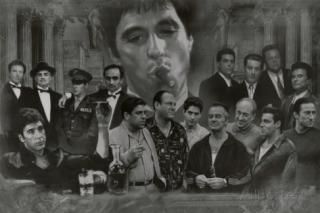Cross posted from The Stars Hollow Gazette
This is your morning Open Thread. Pour your favorite beverage and review the past and comment on the future.
Find the past “On This Day in History” here.
Click on image to enlarge
June 15 is the 166th day of the year (167th in leap years) in the Gregorian calendar. There are 199 days remaining until the end of the year.

On this day 1215, Magna Carta sealed.
Following a revolt by the English nobility against his rule, King John puts his royal seal on the Magna Carta, or “Great Charter.” The document, essentially a peace treaty between John and his barons, guaranteed that the king would respect feudal rights and privileges, uphold the freedom of the church, and maintain the nation’s laws. Although more a reactionary than a progressive document in its day, the Magna Carta was seen as a cornerstone in the development of democratic England by later generations.
John was enthroned as king of England following the death of his brother, King Richard the Lion-Hearted, in 1199. King John’s reign was characterized by failure. He lost the duchy of Normandy to the French king and taxed the English nobility heavily to pay for his foreign misadventures. He quarreled with Pope Innocent III and sold church offices to build up the depleted royal coffers. Following the defeat of a campaign to regain Normandy in 1214, Stephen Langton, the archbishop of Canterbury, called on the disgruntled barons to demand a charter of liberties from the king.
Magna Carta is an English charter, originally issued in the year 1215 and reissued later in the 13th century in modified versions, which included the most direct challenges to the monarch’s authority to date. The charter first passed into law in 1225. The 1297 version, with the long title (originally in Latin) The Great Charter of the Liberties of England, and of the Liberties of the Forest, still remains on the statute books of England and Wales.
The 1215 Charter required King John of England to proclaim certain liberties, and accept that his will was not arbitrary, for example by explicitly accepting that no “freeman” (in the sense of non-serf) could be punished except through the law of the land, a right which is still in existence today.
Magna Carta was the first document forced onto an English King by a group of his subjects, the feudal barons, in an attempt to limit his powers by law and protect their privileges. It was preceded and directly influenced by the Charter of Liberties in 1100, in which King Henry I had specified particular areas wherein his powers would be limited.
Despite its recognised importance, by the second half of the 19th century nearly all of its clauses had been repealed in their original form. Three clauses remain part of the law of England and Wales, however, and it is generally considered part of the uncodified constitution. Lord Denning described it as “the greatest constitutional document of all times – the foundation of the freedom of the individual against the arbitrary authority of the despo In a 2005 speech, Lord Woolf described it as “first of a series of instruments that now are recognised as having a special constitutional status”, the others being the Habeas Corpus Act, the Petition of Right, the Bill of Rights, and the Act of Settlement.
The charter was an important part of the extensive historical process that led to the rule of constitutional law in the English speaking world, although it was “far from unique, either in content or form”. In practice, Magna Carta in the medieval period did not in general limit the power of kings, but by the time of the English Civil War it had become an important symbol for those who wished to show that the King was bound by the law. It influenced the early settlers in New England and inspired later constitutional documents, including the United States Constitution.







